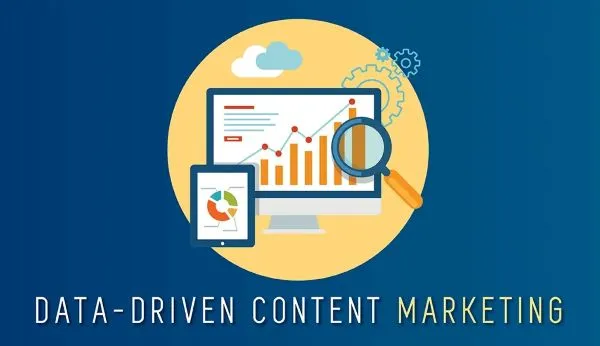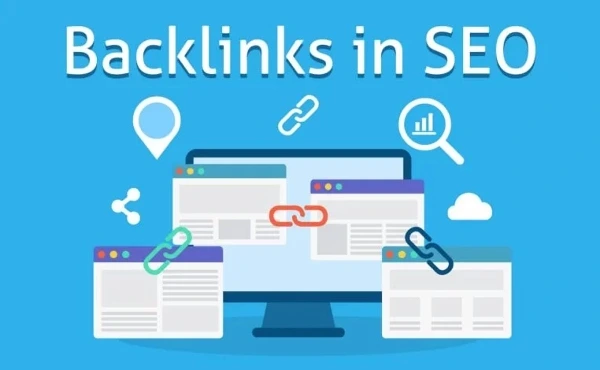
Digital marketing thrives on impactful content. content is the foundation of brand visibility, audience engagement, and customer trust. But not all content is created equal. Businesses that churn out posts without strategy often fail to generate meaningful results. On the other hand, organizations that rely on data-driven content strategies see stronger engagement, higher search rankings, and greater ROI.
The difference lies in how data is collected, analysed, and applied to decision-making. Guesswork may occasionally yield results, but it lacks consistency. That’s why more businesses are turning to all-in-one marketing software-a single platform that integrates analytics, SEO, automation, and campaign management. This approach allows marketers to move beyond intuition and create strategies backed by measurable insights.
In this blog, we’ll explore why data-driven content is the future, how all-in-one marketing software empowers businesses, and the exact steps you can take to build strategies that work.
Why Data-Driven Content Strategies Matter
A data-driven content strategy is one that uses analytics and performance insights to guide planning, creation, distribution, and optimization. Rather than asking, “What do we think our audience wants?”, businesses can ask, “What does the data show our audience actually engages with?”
Key Benefits of Data-Driven Content
- Audience Understanding
Data reveals customer behavior, preferences, and pain points. This insight helps brands create content that truly connects. - Higher ROI
Resources are invested in campaigns proven to work, which means less waste and more results. - Personalization at Scale
Instead of a “one-size-fits-all” approach, businesses can craft targeted content for different audience segments. - Continuous Improvement
Data allows marketers to refine campaigns, ensuring they get better over time rather than repeating mistakes.
Put simply, data transforms content from being guesswork into a measurable growth engine.
The Role of All-in-One Marketing Software
Traditional marketing workflows often rely on multiple disconnected tools: one for SEO, another for social media scheduling, a different one for analytics, and yet another for email campaigns. This fragmentation leads to inefficiency, data silos, and wasted effort.
All-in-one marketing software solves this problem by consolidating everything into one platform. From analytics to publishing, businesses get a 360-degree view of content performance and the tools to act on it.
Let’s break down the ways this type of software empowers smarter strategies.
How All-in-One Marketing Software Transforms Content Strategy
1. Deep Audience Insights
The foundation of a successful content strategy is understanding your audience. All-in-one platforms track:
- Website visits and bounce rates
- Social engagement metrics
- Email open and click-through rates
- Conversion funnels
By consolidating these insights, marketers gain a holistic view of customer behavior, which leads to more accurate targeting and engagement.
2. Content Planning and Collaboration
Effective content creation requires planning, consistency, and teamwork. Integrated content calendars and workflow tools ensure:
- Campaign deadlines are met
- Teams collaborate seamlessly
- Content pipelines stay organized
This eliminates chaos and keeps marketing efforts aligned and strategic.
3. SEO and Keyword Intelligence
Ranking on Google is essential for long-term visibility. All-in-one platforms provide:
- Keyword research tools
- Competitor analysis
- SERP tracking
- On-page optimization suggestions
These features allow marketers to create content that not only resonates with readers but also performs well in search engines.
4. AI-Powered Content Assistance
Creating quality content takes time. Many platforms now integrate AI-driven writing assistants that generate headlines, suggest improvements, and personalize email subject lines. This enhances productivity while maintaining creativity.
5. Omnichannel Publishing
Managing multiple platforms manually is time-consuming. With all-in-one software, businesses can:
- Publish blogs, emails, and social posts from one dashboard
- Schedule content in advance
- Maintain brand consistency across platforms
This ensures maximum reach with minimum effort.
6. Real-Time Performance Tracking
Data is only valuable if you can act on it. Real-time dashboards allow businesses to monitor:
- Engagement rates
- Conversions
- ROI per campaign
By knowing exactly what works, businesses can refine strategies and scale the most effective campaigns.
Steps to Build a Data-Driven Content Strategy with All-in-One Marketing Software
Step 1: Define SMART Goals
Be clear on what you want to achieve. Is it traffic growth, lead generation, or brand awareness? Specific, measurable goals provide a roadmap.
Step 2: Analyze Audience Behavior
Leverage analytics to understand who your customers are, what content they prefer, and how they engage across channels.
Step 3: Conduct Keyword Research
Use SEO tools to identify high-volume, low-competition keywords relevant to your industry. Align content with customer search intent.
Step 4: Plan Content Strategically
Use built-in calendars to map out campaigns, assign tasks, and maintain consistency.
Step 5: Create High-Value Content
Combine creativity with insights. Use AI tools for support but ensure every piece is aligned with audience needs.
Step 6: Distribute Across Channels
Schedule content for blogs, social media, and email campaigns from one unified dashboard.
Step 7: Track and Optimize
Review real-time data, adjust underperforming campaigns, and double down on what’s working.
Benefits of All-in-One Marketing Software
- Efficiency: Manage everything from one place.
- Cost Savings: Replace multiple subscriptions with a single platform.
- Improved Collaboration: Teams work more effectively with shared workflows.
- SEO Advantage: Data-backed insights help improve rankings.
- Higher ROI: Campaigns are tracked, measured, and refined for maximum return.
Conclusion
In the fast-paced digital marketplace, simply creating more content isn’t enough. The brands that succeed are those that create smarter content-backed by data, optimized for search, and distributed strategically.
By adopting all-in-one marketing software, businesses can unlock the full potential of data-driven content strategies. From planning to publishing to performance tracking, everything happens under one roof.
If your goal is to build campaigns that engage, convert, and deliver measurable ROI, it’s time to shift from intuition to data-powered strategy. With the right tools, content isn’t just created-it’s transformed into a growth engine
What to read next

